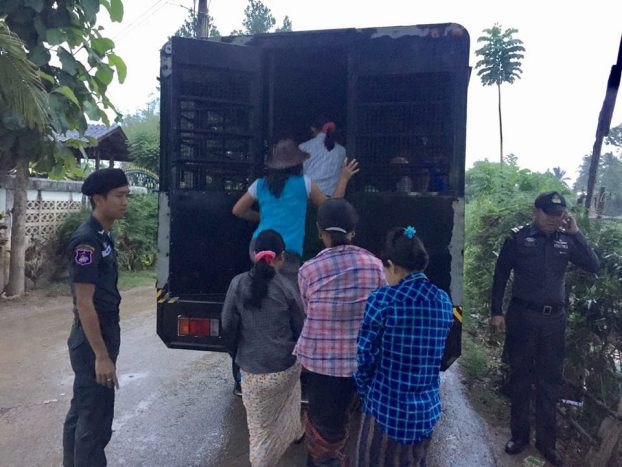More than 300 migrant workers from Burma have been arrested in five days since Thai authorities launched a crackdown in Mae Sot, a Thai border town where thousands of Burmese work, mostly in factories, construction or the agricultural sector.
“The Thai police have not only cracked down on factories in downtown Mae Sot, but also at smaller factories and workers’ residences on the outskirts of town,” said Moe Gyo, the chair of the Joint Action Committee for Burmese Affairs.
Speaking to DVB earlier today, Moe Gyo said, “The crackdown started on 14 May and is ongoing. Today, the police busted places in villages along the Moei River [Thai-Burmese border]. Police inspected farms, crafts workshops and small businesses, mostly focusing on workplaces that are not officially registered. Of course, if the workplace is not registered, neither are the workers.
“I heard that about 50 illegal migrant workers were arrested this morning, and I estimate more than 300 in the four days prior.”
[related]
He said that those Burmese workers caught without the correct paperwork are usually detained in jail before being deported.
“I’m not sure why the Thai police decided to start busting migrant workers this week,” he continued. “On 13 May, Aung Ko Than, the labour attaché at the Myanmar Embassy, and I submitted a complaint to the Thai police for fining the so-called ‘illegal’ workers 3,000 to 5,000 baht [US$100- $160]. Even for those who are missing just one paper.”
Moe Gyo added: “The police did not take any action against the employers.”
He said that of the approximately 250,000 Burmese migrant workers in Mae Sot, only about 80,000 have officially registered at a Thai labour office.



